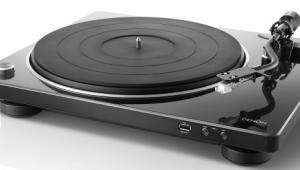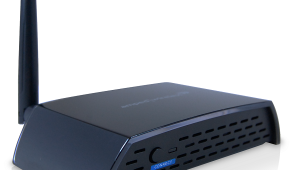The Last Blockbuster

Once upon a time, at its peak in 2004, there were over 9,000 Blockbuster stores worldwide (about half in the US) employing over 84,000 people. Then the Internet happened, downloading happened, streaming happened, video-on-demand happened, Netflix happened, Redbox happened, and VCRs definitely were no longer happening. By April 2017, Blockbuster had dwindled to 10 stores; as you might expect, the last holdouts were mainly in places where Internet access was terrible or at least terribly expensive. In particular, Alaska was the last output. But the Internet happened there too and as recently as last week, there were only three stores with OPEN (O-P-E-N) signs in the window. Two of them, in Anchorage and Fairbanks, and one in Bend, Oregon.
The Alaskan stores shut down their rentals yesterday (July 15), and will start to liquidate their inventory today. That leaves only one Blockbuster (there are some holdouts in foreign lands) but Bend seems to be the last US location. (Ambiguously, the Blockbuster website has a long list of store locations, but I suspect that's because no one's bothered to update their dwindling list. I mean, why bother?) I'm not sure what the deal is with Bend, but it wins the Last Store Standing prize. Sandi Harding, the general manager at the Bend store, says she has no plans to close the store.
Blockbuster traces its origins to 1985 when David Cook's wife, Sandy, urged her husband to get into the video business. He bought a video store franchise in Dallas but when the franchisee wouldn't let him spruce up his store with blue and yellow decor, he quit and opened his own store on October 19, 1985 in Dallas with an impressive inventory of 8,000 VHS and 2,000 Beta tapes.
Business genius Wayne Huizenga joined the growing business and by acquiring other video rental companies and aggressively selling franchising opportunities, Blockbuster became a multi billion-dollar company. Grandiose plans were floated for a gigantic Blockbuster sports and amusement park in Florida. Viacom acquired Blockbuster in 1994 for $8.4 billion. Although there were challenges, the company continued to chug along and even expand.
From the peak in 2004 to 2010, the business went downhill fast. Blockbuster declared bankruptcy in 2010. Dish Network bought Blockbuster and its remaining 1,700 stores, in 2011. Dish wanted to rebrand the company as Blockbuster Movie Pass and hoped to compete against Netflix. For reasons I cannot fathom, you could sign up for a subscription to Movie Pass only if you were also a subscriber to Dish Nework's TV service. From 2011 to 2018, business continued to go downhill fast. And here we are.
Blockbuster is done. An era has ended, and that tape is never going to be rewound. Somewhere a VCR's clock is flashing 12:00 in sad silence.





























































